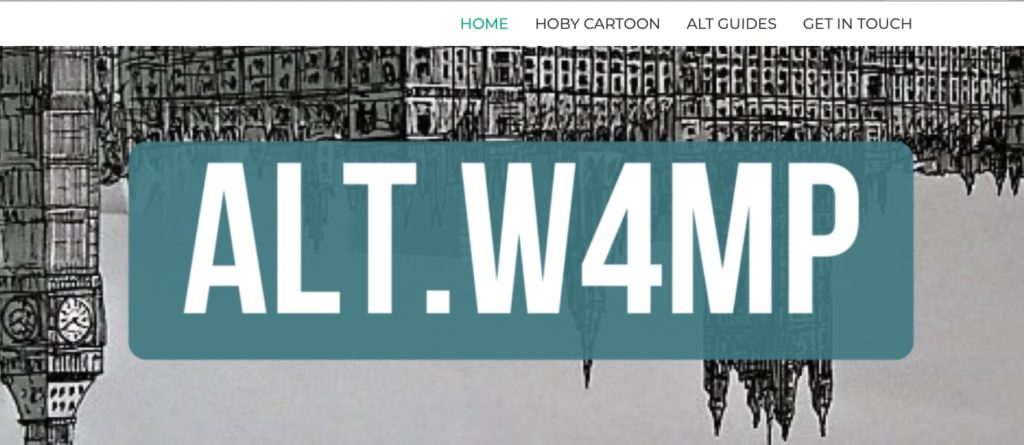Here you will find a collection of guides to good practice that will offer you advice in carrying out the main activities expected of you in your job. They are constantly being revised and updated so if you do print a guide out please remember to check back from time to time.
We also include links to resources that will be of use to staff. Some of these are on the Parliamentary Intranet and can only be accessed if you have an appropriate login.
Setting up Your Office

Between June 2023 to June 2024 a cross-party group of civic technologists worked together to create the MP Office Manual. They are all keen to see MPs with well run offices contributing to a flourishing democracy in the UK.
You can read it at mpofficemanual.uk. Please note that this is hosted on Google Docs and is an external site, not affiliated with w4mp. Please be careful to check any links etc. from the site as they will be to third party sites.
The proposals in the manual come from in-depth interviews with current and former MPs office staff, and expert advice f
Current Guides
Support in Your Job
- Members’ and Members’ Staff Services Team
- Help and Advice for Staff
- Office Managers’ Virtual Drop-in – every Wednesday
- Monthly phone-in Q&A session for all MPs’ staff
- Members’ Staff Roadshows
- Employment
- The Members’ HR Service
- Induction Sessions for MPs’ Staff
- Wellness Working Group
- Working from Home
- Bullying and Harassment and Sexual Harassment support services
- Workplace Adjustments
- Death In Service
- Your Computer is More than a Typewriter (part 1)
- Your Computer is More Than a Typewriter (part 2)
Guides to Parliament
- A Welcome from Sir Lindsay Hoyle, Speaker of the House of Commons
- ParliNet – useful bookmarks
- Rules and courtesies
- The Privy Council
- Business of the House and its Committees: a short guide
- Campaigning: Early Day Motions
- Campaigning: Parliamentary Questions (PQs)
- Campaigning: Petitions
- Register of Interests – Staff
- Rules for the use of stationery and postage-paid envelopes, and for the use of the Crowned Portcullis
- Complaints about an MP
- Online Parliamentary Archives
- Restoration and Renewal of the Palace of Westminster
- How to arrange Gallery Tickets
- Tours of the UK Parliament
The Library
- Guides to Commons Library Services
- Ten Things the Library Can Do For You
- Research Briefings, Standard Notes and Debate Packs
- Online resources from the Commons Library
- The Library Loans Service
- Library Talks
Your Office
- Setting Up the Office
- Stationery
- Travel information for MPs and their staff
- Insurance for MPs
- Interpreters and Translation Services
- Data Protection
- Freedom of Information
Your MP
Researcher Extraordinaire
- PolicyMogul – a free political monitoring and research platform
- Writing a speech
- How to compile a briefing for a roundtable or panel discussion
- Handling the Media
- Working with lobbyists
General Elections
- What is ‘Prorogation’?
- Dissolution Guidance 2024
- Why isn’t there a by-election when an MP defects from one political party to another?
Who’s Who
- List of current MPs elected to Parliament following the 2024 General Election
- List of Ministerial Responsibilities
- Whips and Their Work
- ‘Servants of the House’ – what the Clerks do
- Guide to All Party Parliamentary Groups (APPGs)
- Parliamentary Office of Science & Technology – POST notes
- Peers for the Planet
In the Constituency
- Organising events in the constituency
- Casework
- Introduction to Casework
- Protocol clarified on representing constituents
- Case management software information
- Issue by Issue
- Afghanistan – information for constituents seeking help
- Immigration Casework
- Finding legal advice for your constituents
- The Local Government and Social Care Ombudsman
- Planning matters
- List of waiting times for UK visa applications
- Dealing with Service Providers and Consumer Protection (for Caseworkers and Researchers)
- Constituency Casework Toolkit – from the Commons Library
- Helping your constituents – A guide for MPs and their staff from the Citizens Advice Bureau
- Standard letters and forms
- Preparing for a Constituency Surgery
- Nominating constituents for honours or awards
Online Presence
- Publishing Pictures And Avoiding Rights/Copyright Issues
- Working with Wikipedia
- Video Recording Meetings, Events and Lectures
- Introduction to political blogs and social media
Groups which staff can join
- Representation
- Workplace Equality Networks
- Civil Service Sports Council – Sports and Leisure
- Other groups which staff can join
- All Party Parliamentary Humanist Group
- Christians in Parliament
- Civil Service Football Club
- Commons and Lords Rugby Football Club
- Conservative 6-a-side Football
- Labour Staff Environmental Network
- Lords and Commons Tennis Club
- UK Parliamentary Chess Club
- Parliament Choir
- Parliamentary Netball Group
- Three Bridges Race
- Westminster Gym
- Westminster Wanderers Football Club
- Women’s Parliamentary Cricket Team
- Women’s Parliamentary Football Team
Jobs
- Finding and Posting Jobs
- Frequently asked questions about job adverts
- Finding a job on w4mpjobs
- Advertising jobs with w4mp
- Other Places to Look for Jobs
- Members’ Staff Security Clearance and Pre-Employment Check Questionnaire
- Volunteering and writing opportunities
- Volunteers
- Example of Submitting Multiple Ads as One
W4MP Archive
W4MP has been in operation since 2000 and we have published hundred of guides in that time. Many of these have been superseded and removed from our main site, but they can be consulted on our archive site. These are for research purposes and should not be relied upon as a guide to current practice.
Alt.Guides

Our light-hearted alt.guides are also available for your delectation and delight
Other Online Resources
Many additional resources are available to MPs staff, including:

